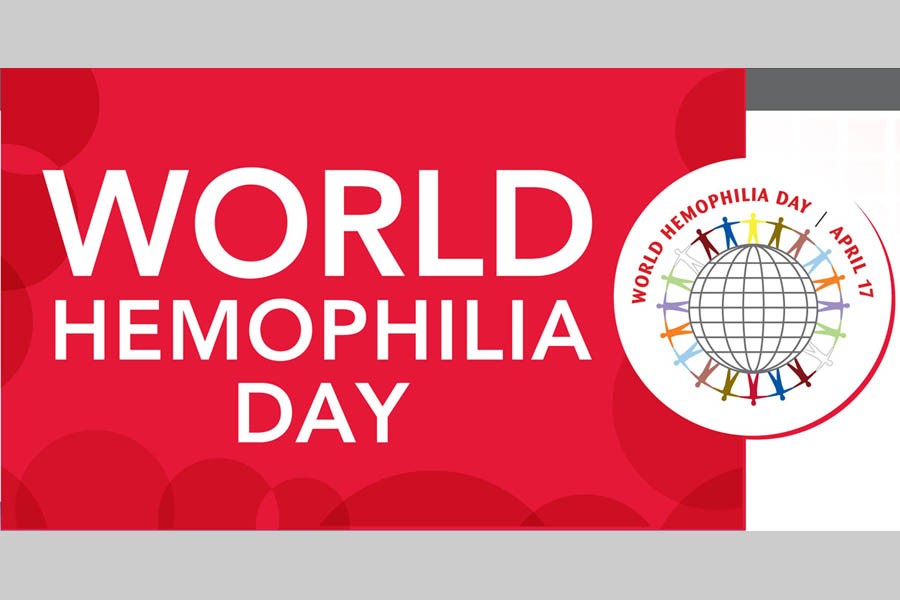Every year on April 17, the World Haemophilia Day provides a unique opportunity for health experts, haemophilia patients and other stakeholders in Bangladesh to come together and raise awareness about haemophilia and other inherited bleeding disorders.
This year, the theme of the World Haemophilia Day is outreach and identification, and the tagline is, "Reaching Out: The First Step to Care". Patient outreach and identification are about finding and supporting individuals with haemophilia or other bleeding disorders-including Von Willebrand Disease (VBD)-those who have not been diagnosed yet, or whose health needs are not being met by healthcare services.
The World Federation of Haemophilia (WFH) has made substantial progress in supporting the identification of new patients, but much is left to be done to ensure proper care to all who live with bleeding disorders. Over the last 50 years since its initiation, the WFH has provided global leadership to improve and sustain care for people with inherited bleeding disorders, including haemophilia, VBD, rare factor deficiencies, and inherited platelet disorders, no matter where they live.
Till date, 1,748 Haemophilia patients have been identified in Bangladesh. However, to go by the prevalence rate, there could be 11,000 haemophilia patients and people with other inherited bleeding disorders in the country.
Haemophilia has severe and spontaneous bleeding episodes requiring blood products and ideally specialised factor concentrates within hours of onset of bleeding to minimise damage, reduce the number of missed days of school or work and to minimise overall use of the resources if treated early. Bleeding can be life- or limb-threatening.
At the moment, many families have to travel with their affected child for many hours with painful and disabling acute bleeding to access care in the centre of nearby cities (Dhaka or Chattogram). The government is yet to purchase clotting factor concentrate for such patients in the country. Offering adequate treatment and care to patients will help the patients and their families.
In order to make a profound difference in the lives of people with haemophilia in Bangladesh, the government can consider taking the following steps:
- n Outreach programmes and improvement of laboratory diagnostic capacities: These are necessary to ensure that patients are identified and accurately diagnosed.
- n Allocate budget to purchase clotting factor concentrates (CFCs): CFCs are safe and efficacious and are included on the World Health Organisation's (WHO) List of Essential Medicines. Presently, the replacement therapies of clotting factor concentrates are available for Bangladeshi patients through the WFH humanitarian aid donations.
- n Raising public awareness and educate people about haemophilia: Such programmes can be very successfully implemented in collaboration with the patient associations that can act as one of the main partners in offering patient education and other support services.
- n Haemophilia care policy under national health policy: The government should consider incorporating a specific haemophilia care policy in the national health policy of Bangladesh. Given the unique needs of patients with rare bleeding disorders, codifying their care in national policy can help ensure equal and appropriate care across the country.
- n Establishing haemophilia treatment centres: Haemophilia can be optimally managed only in specialised haemophilia treatment centres, which represents well-established standards in many countries of the world.
- n Developing a national haemophilia programme and national treatment guidelines/protocols: These will serve as a prerequisite for the improvement of health and quality of life of haemophilia patients in Bangladesh.
These issues can be addressed in collaboration with key stakeholders including the Health Ministry, healthcare professionals (leading medical experts), the World Health Organisation (WHO), the WFH and patient associations.
S Satapathy is the Regional Manager, South Asia and East Asia of World Federation of Haemophilia (WFH).


